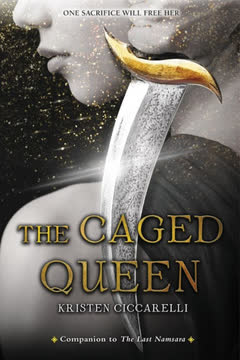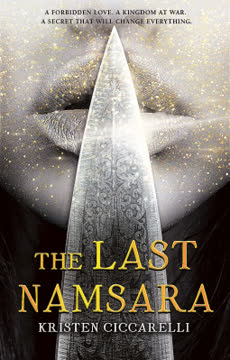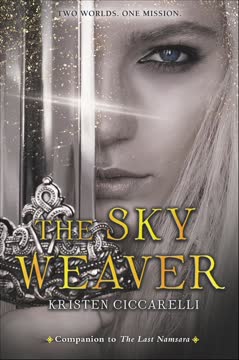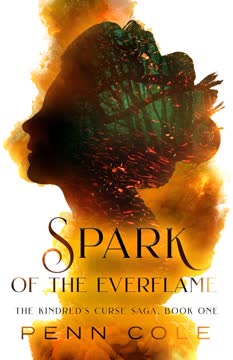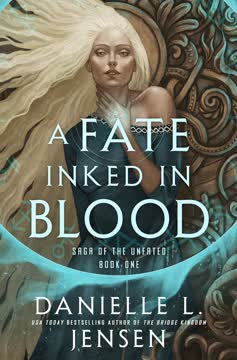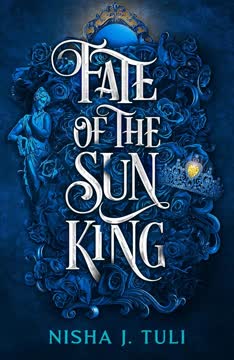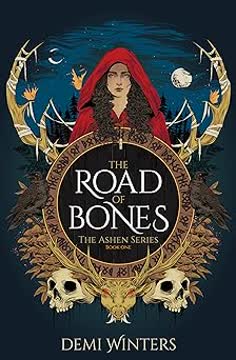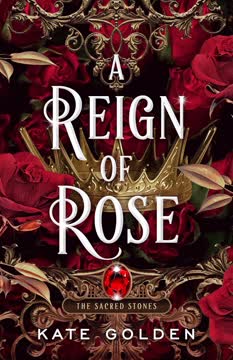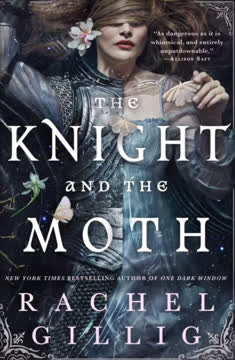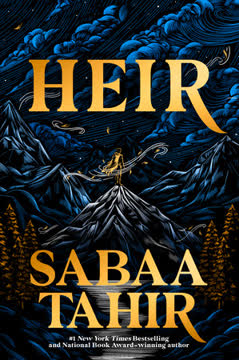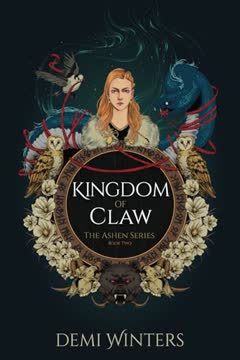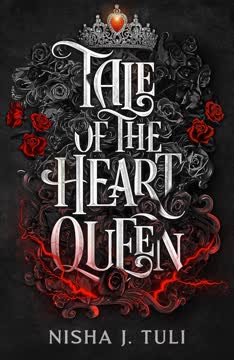Plot Summary
Rules for Relinquishing
The story opens with the ancient rules of the Relinquishing, a night when the living let go of the dead, and the world is reminded of the cost of holding on. This tradition, rooted in the culture of the scrublands, is both a literal and symbolic foundation for the novel's central conflict: the inability to relinquish those we love. The prologue's myth of Sunder, who cheats death and loses his daughter as a result, foreshadows the consequences of refusing to let go. The rules—snuff out the lights, bolt the doors, mask your face—are not just about safety from spirits, but about the pain and necessity of release. This theme will haunt Roa, the protagonist, as she faces her own impossible choices between love, loyalty, and the greater good.
The Hum Between Sisters
Roa and Essie, twin sisters born on the night of the Relinquishing, share a supernatural connection they call the "hum"—a psychic, emotional, and physical bond that makes them inseparable. Their closeness is both a blessing and a curse, as the world around them fears their power. After a tragic accident, Essie's soul becomes trapped in the form of a white hawk, unable to cross into the afterlife. The hum changes, becoming a lifeline that keeps Essie tethered to Roa and the world of the living. This bond, once a source of comfort, becomes a source of pain and longing, as Roa is forced to confront the cost of refusing to let her sister go.
A Marriage of Necessity
Roa's marriage to Dax, the new dragon king, is a calculated move to save her starving people from Firgaard's tyranny. She gives up her first love, Theo, and her own happiness to secure an alliance that will lift the sanctions on the scrublands. The marriage is unconsummated, cold, and fraught with tension. Dax, charming and careless, seems indifferent to Roa's suffering and the promises he made. Roa is haunted by the empty chair of her former betrothed and the shame in her father's eyes. She is queen in name, but feels caged by her choices, her people's expectations, and the absence of her sister's warmth.
The Enemy King
Dax, the dragon king, is a paradox: a boy who once found comfort in Roa's home, now a king who seems to care more for wine and flirtation than for justice. Roa's resentment grows as Dax repeatedly breaks his promises to her and her people. The court is rife with rumors of his infidelity, and Roa is forced to navigate a world where she is mistrusted as an outlander queen. The political landscape is treacherous, with old enemies and new alliances forming in the shadows. Roa's only solace is the hum of her bond with Essie, which grows fainter as the Relinquishing approaches.
Sandstorm and Survival
A journey across the sand sea turns deadly when a sandstorm strikes, destroying the caravan's supplies and leaving Roa, Dax, and their companions stranded. Forced to rely on each other for survival, Roa and Dax share moments of vulnerability and unexpected tenderness. The ordeal strips away their defenses, revealing the pain and longing beneath their anger. Roa's absence of Essie is felt more keenly than ever, and the hum between them flickers like a dying flame. The sandstorm becomes a crucible, forging new bonds and testing old ones, as Roa is forced to confront the reality of her choices.
The Price of Power
Flashbacks reveal the events leading up to Roa's marriage: her alliance with Dax to overthrow his tyrant father, the betrayal of her betrothal to Theo, and the forging of a fragile peace. The cost of power is steep—Roa loses her home, her love, and her sense of self. The scrublands' history of oppression and resistance is woven through the narrative, highlighting the tension between tradition and change. Roa's determination to protect her people is both her strength and her undoing, as she becomes entangled in a web of political intrigue and personal sacrifice.
The Caged Queen
Back in Firgaard, Roa finds herself increasingly isolated. The court's suspicion of her grows, and even her closest friends seem distant. Rumors swirl about Dax's infidelity and Roa's own loyalty. The discovery of a secret plot against the king, and the revelation of Lirabel's pregnancy, shatter what little trust remains. Roa is forced to question everyone's motives—including her own. The metaphor of the cage becomes literal and psychological, as Roa realizes she is as trapped by her love for Essie as Essie is by her hawk form.
Betrayals and Broken Promises
Theo, Roa's former love, returns with a dangerous proposition: use the legendary Skyweaver's knife to exchange Dax's soul for Essie's, freeing her sister at the cost of the king's life. Rebekah, a powerful and vengeful councillor, offers her support in exchange for Roa's complicity in a coup. Roa is torn between her duty to her people, her love for her sister, and the growing realization that Dax may not be the monster she believed. Betrayals multiply as secrets come to light, and Roa is forced to make impossible choices.
The Knife and the Cage
Roa's quest for the Skyweaver's knife leads her into Rebekah's trap. Essie is captured and caged, her spirit fading as the Relinquishing nears. Roa is blackmailed into betraying Dax, stealing the key to the palace's secret passage and delivering it to Rebekah's forces. The knife, a symbol of hope and destruction, becomes the fulcrum on which Roa's fate—and Essie's—will turn. The cost of love is laid bare, as Roa realizes she must choose between saving her sister and saving herself.
The Corrupted Spirit
As the Relinquishing dawns, Essie's spirit, trapped too long in the world of the living, becomes corrupted—a monstrous force capable of violence and destruction. The ancient warnings of the Relinquishing come true, as the cost of refusing to let go is revealed in all its horror. Roa is confronted with the reality that her love has become a cage, and that the only way to save Essie is to relinquish her at last. The mythic and the personal collide, as the story's central themes reach their devastating climax.
The Relinquishing Approaches
With the city in chaos and the coup underway, Roa is dragged before the people, accused of treason and forced to confront the consequences of her actions. Dax, risking everything, comes to her defense, but the trap is already sprung. The Relinquishing night becomes a crucible in which all debts must be paid, all secrets revealed, and all bonds tested. Roa stands at the crossroads of love and duty, knowing that whatever choice she makes will break her heart.
The Coup Unleashed
Rebekah's forces storm the palace, and the city erupts in violence. Allies and enemies are revealed, and the true cost of power is paid in blood. Roa and Dax, once enemies, now fight side by side against a common foe. The lines between love and hate, loyalty and betrayal, blur as the world they knew is torn apart. In the chaos, Roa must find the strength to do what she has always feared: let go.
The Choice of Sacrifice
In the final confrontation, Roa is given the chance to use the Skyweaver's knife to save Essie by killing Dax. But as Essie's corrupted spirit threatens to destroy everything, Roa realizes that true love is not about holding on, but about letting go. In a moment of unbearable pain and clarity, she relinquishes her sister, setting Essie free and breaking the cycle of suffering. The act of sacrifice becomes an act of redemption, for both sisters and for the kingdom.
Letting Go
In the wake of loss and upheaval, Roa and Dax begin to rebuild—personally and politically. The ancient law against regicide is struck down, and a new, more just order begins to take shape. Roa mourns Essie, but finds comfort in the lingering hum of their bond, a reminder that love endures beyond death. The story ends with the promise of healing, forgiveness, and the possibility of a future shaped not by cages, but by the freedom to choose—and to let go.
Characters
Roa
Roa is the heart of the novel—a woman defined by her love for her twin, Essie, and her willingness to sacrifice everything for her people. Her psychological landscape is shaped by grief, guilt, and the impossible burden of leadership. Roa's bond with Essie is both her greatest strength and her deepest wound, driving her to make choices that blur the line between love and obsession. Her marriage to Dax is a political act, but her journey is one of self-discovery, as she learns the true meaning of love, power, and relinquishment. Roa's arc is one of transformation: from a caged queen, trapped by duty and loss, to a woman who finds the courage to let go.
Essie
Essie, once vibrant and defiant, becomes a tragic figure after her death, her soul trapped in the form of a white hawk. The hum she shares with Roa is a lifeline, but also a chain, keeping her from crossing into the afterlife. As the story progresses, Essie's spirit begins to fade and corrupt, embodying the dangers of refusing to let go. Her relationship with Roa is the emotional core of the novel, and her ultimate fate is a devastating commentary on the price of love and the necessity of relinquishment. Essie's presence lingers even after her release, a testament to the enduring power of sisterhood.
Dax
Dax is a study in contradictions: outwardly careless and flirtatious, inwardly burdened by guilt and responsibility. His relationship with Roa is fraught with misunderstanding, resentment, and unspoken longing. Dax's apparent incompetence masks a keen intelligence and a deep sense of duty. He is haunted by his role in Essie's death and by the legacy of his tyrant father. Over the course of the novel, Dax evolves from an enemy king to a partner and equal, revealing the complexity of power, forgiveness, and love. His arc is one of redemption, as he learns to trust and be trusted in return.
Theo
Theo, Roa's former betrothed, is a figure of loyalty and bitterness. His love for Roa is genuine, but his inability to let go of the past drives him to dangerous extremes. Theo's proposal to use the Skyweaver's knife to save Essie by killing Dax sets the central moral dilemma in motion. His alliance with Rebekah and his willingness to betray Dax reveal the corrosive effects of grief and jealousy. Theo's arc is one of tragic inevitability, as his actions force Roa to confront the limits of love and the cost of vengeance.
Lirabel
Lirabel is Roa's childhood friend and confidante, but their relationship is strained by secrets and misunderstandings. Lirabel's pregnancy, her hidden love for Jas, and her status as a ward in the House of Song make her a figure of vulnerability and resilience. Her arc mirrors Roa's, as both women struggle to find agency and belonging in a world that seeks to define them by their relationships to men and power. Lirabel's loyalty is tested, but ultimately endures, providing Roa with a model of forgiveness and hope.
Rebekah (Bekah) Silva
Rebekah is a formidable antagonist—intelligent, beautiful, and utterly ruthless. Her hatred for Dax is rooted in personal betrayal and political ambition. She manipulates Roa, Theo, and the council with chilling precision, using the Skyweaver's knife and Essie's captivity as leverage. Rebekah's psychological complexity lies in her ability to justify any action in the pursuit of power. She is both a mirror and a warning to Roa, embodying the dangers of sacrificing humanity for ambition.
Jas
Jas, Roa's younger brother, is a steady and compassionate presence. His loyalty to Roa and his love for Lirabel ground the story in the values of family and community. Jas's arc is one of quiet heroism, as he supports Roa through her darkest moments and helps to heal the rift between the Houses of Song and Sky. His relationship with Lirabel offers a counterpoint to the novel's more destructive loves, suggesting the possibility of happiness and renewal.
Safire
Safire, Dax's cousin and the kingdom's commandant, is a warrior of mixed heritage who must fight for respect in a world that mistrusts her. Her loyalty to Dax and her strategic brilliance make her a key ally in the struggle against Rebekah's coup. Safire's arc is one of self-acceptance and empowerment, as she claims her place in the new order and helps to forge a more just and inclusive kingdom.
Torwin
Torwin, once a skral slave, becomes a symbol of the kingdom's potential for change. His love for Asha, his courage in the face of danger, and his unwavering loyalty to Dax and Roa make him a vital part of the resistance. Torwin's arc is one of liberation and self-realization, as he helps to break the chains of the past and build a better future.
Asha
Asha, Dax's sister and the former Iskari, is a figure of legend and inspiration. Her defiance of tyranny, her bond with dragons, and her role in the kingdom's transformation make her a guiding force for Roa and Dax. Asha's arc is one of reconciliation and healing, as she helps her brother and Roa find the strength to let go and move forward.
Plot Devices
The Hum and the Skyweaver's Knife
The hum—the psychic bond between Roa and Essie—serves as both a literal and metaphorical device, representing the power and peril of love that refuses to let go. It is the engine of the plot, driving Roa's every decision and shaping the emotional landscape of the novel. The Skyweaver's knife, a legendary artifact capable of exchanging souls, is the story's central MacGuffin. Its mythic origins and the rules governing its use are revealed through stories-within-the-story, foreshadowing the novel's climax. The knife's power is both a hope and a threat, forcing Roa to confront the consequences of her choices. The narrative structure weaves past and present, myth and reality, using foreshadowing, flashbacks, and parallel stories to deepen the emotional resonance and thematic complexity. The recurring motif of cages—literal, emotional, and societal—underscores the novel's exploration of freedom, sacrifice, and the necessity of relinquishment.
Analysis
The Caged Queen is a powerful meditation on the nature of love, grief, and the cost of refusing to relinquish what we cannot keep. Through the intertwined stories of Roa and Essie, the novel explores the dangers of holding on too tightly—to people, to power, to the past. The hum between the sisters is both a gift and a curse, a source of strength that becomes a prison. The Skyweaver's knife, with its promise of restoration, tempts Roa to sacrifice everything for the illusion of wholeness. But the story's true wisdom lies in its recognition that real love is not about possession or control, but about the willingness to let go—even when it breaks us. The political intrigue and personal betrayals that drive the plot are ultimately secondary to the novel's central lesson: that freedom, healing, and hope are only possible when we relinquish our cages, both literal and metaphorical. In a world obsessed with power and revenge, The Caged Queen offers a radical vision of forgiveness, vulnerability, and the transformative power of letting go.
Last updated:
Review Summary
The Caged Queen received mixed reviews. Many praised the rich worldbuilding, character development, and Ciccarelli's writing style. Readers enjoyed the exploration of grief, sisterly bonds, and political intrigue. However, some felt the pacing was slow and the lack of communication between characters frustrating. The romance and character arcs drew both praise and criticism. While some missed the dragons from the first book, others appreciated the different focus. Overall, most found it an engaging companion novel, though opinions varied on how it compared to its predecessor.
